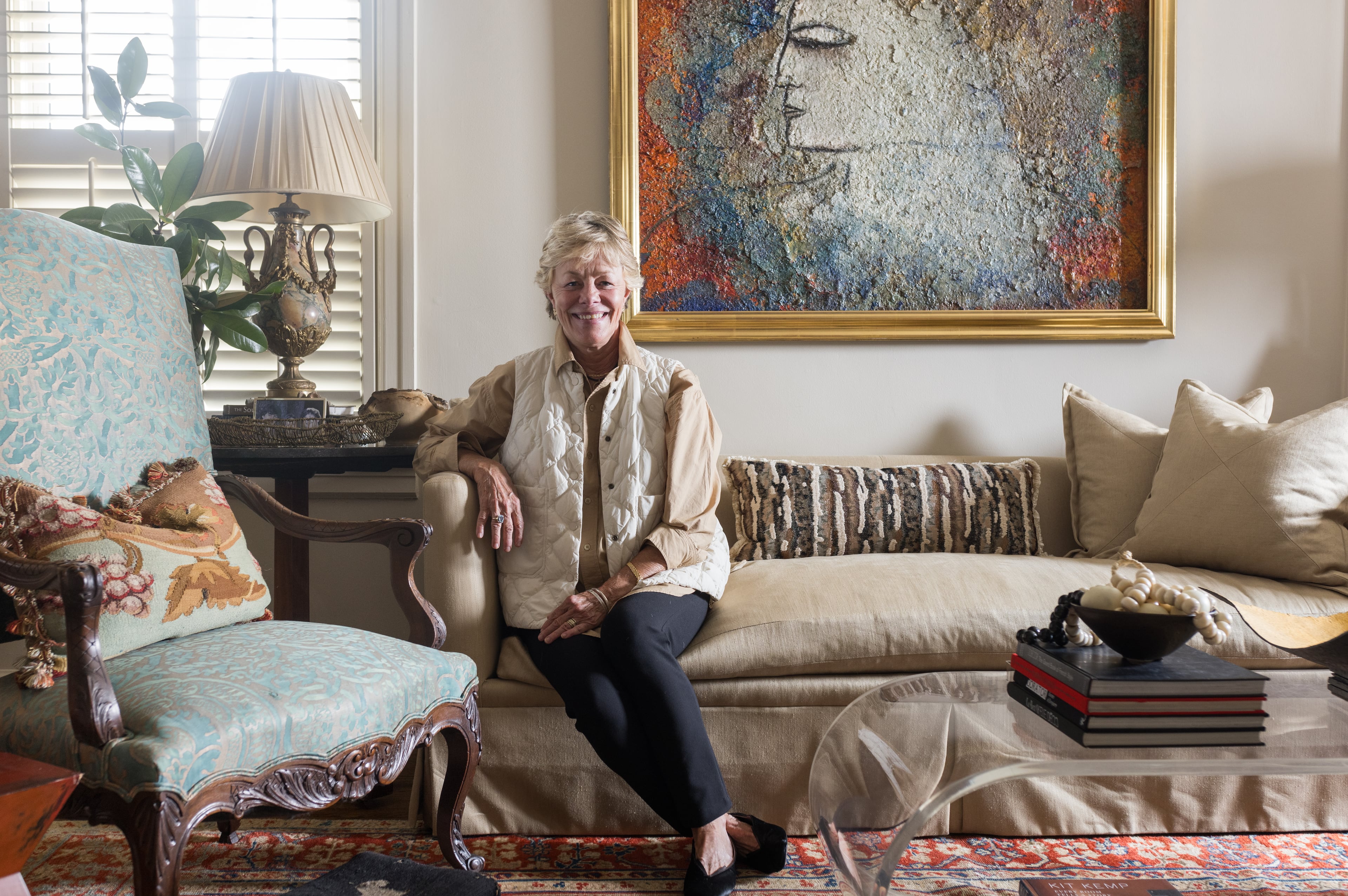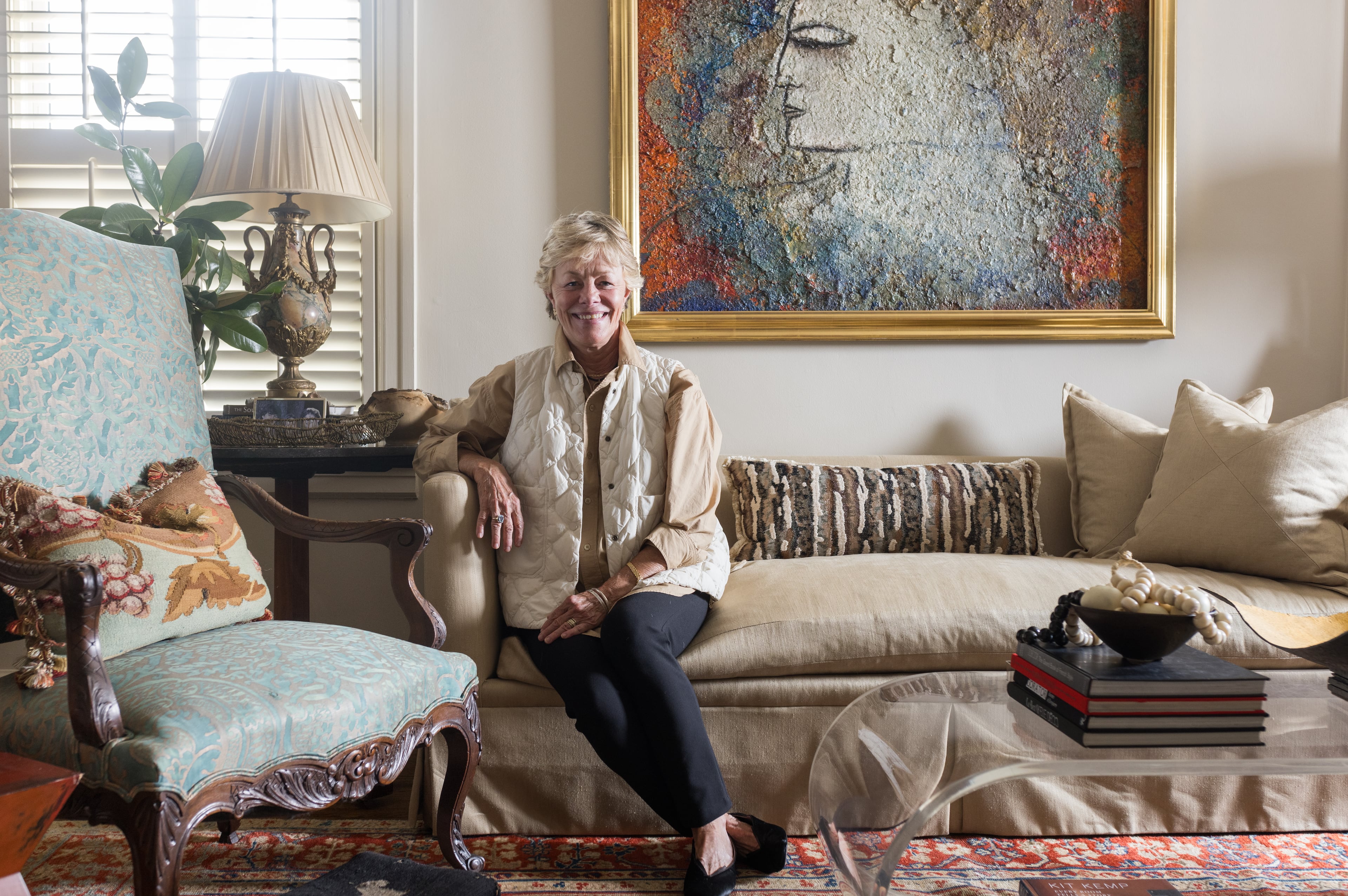Less is more when downsizing
Whether you call it downsizing, rightsizing or doing more with less, it is one way to occasionally come out ahead in the housing market these days.
As in 40 percent more. That’s the amount of profit Old Fourth Ward resident Jane Weir scored when she made a dramatic downsizing move. In 2010 Weir, 62, sold her spacious two-story Noble Park home where she’d lived for 22 years and bought a 1,100-square-foot space in the Studioplex complex where she now lives and teaches yoga.
About her large Noble Park home Weir said, "The last five years, there were rooms I didn’t go into. Smaller is easier to maintain. You just don’t have the square footage.”
The reasons for downsizing are many: a desire to streamline and simplify life; an interest in lessening environmental impact; a desire to move closer to amenities like restaurants and shops; a need for less space due to an empty nest or change in marital status.
Atlanta's Salwen family famously chose a highly altruistic reason to downsize from a $2 million mansion in Ansley Park to a home half the size and half the price a few blocks over. As father Kevin and daughter Hannah recounted in their book "The Power of Half" (Mariner Books) published in January, their downsizing yielded $800,000, which they donated to villagers in Ghana. There are different approaches to downsizing, too.
There are also pragmatic economic realities behind downsizing, such as less equity available in one’s existing home to roll over to a new home; tighter credit standards; less interest in buying homes as an investment; and a desire to reduce energy costs.
Downsizing is part of a larger social shift, too. According to “The Kiplinger Letter,” baby boomers tended to equate size with status but millennials prefer smaller homes on smaller lots. The U.S. Census Bureau bears that trend out, reporting a decline in new single-family home size from 2,519 square feet in 2008 to 2,438 square feet in 2009.
John and Deborah Nail don’t expect to make a profit when they sell their $1.4 million, 8,300-square-foot Eco Custom Home and buy a home half the size in the same neighborhood or maybe Morningside. But then, they’re not downsizing for economic reasons. For entrepreneur John Nail, 58, and his artist wife, Deborah, the motivation for selling the home e they bought in 2006 is directly related to size. It became too much to maintain and a hassle to secure when they traveled.
“Sometimes your eyes are bigger than your stomach,” said Nail. “We have beautiful space. The problem is we don’t use it all.”
The Rev. Paige Pritchard had e a more unusual reasons for downsizing from her “dream home” in Loganville to a modest ranch in Hapeville. When she left her corporate job as an accountant to became a pastor, her new posting at the Hapeville First United Methodist Church meant moving to a parsonage and losing 600-700 square feet. She hired professional organizer Melinda Anderson of Dacula to help maximize the new space by paring down Pritchard's possessions to what fit in the new space.
In their quest for a simpler way of life with fewer material possessions, insurance agents Eric and Betty Leathers are on their second downsizing. They made a profit when they e moved in 2001 from a 8,000-square-foot home with a yard in Brookhaven to a 3,800-square-foot townhouse nearby. Now they have a contract on a two-bedroom condo in Village Place Brookhaven. The couple are looking forward to lower property taxes, less maintenance and what Eric, 61, calls the advantages of “location, location, location,” referring to the mixed-use development's copious restaurants and amenities.
“The only thing I’m going to miss is my wine cellar,” said Betty Leathers.
Downsizing isn't restricted t0 intown living. Real estate agent Chereda Miller has seen the trend in Smyrna, too.
“The majority of existing home buyers I've worked with in the past three years have been downsizing,” she said. “One unique reason I’ve found is that retired buyers are downsizing their main residences to increase funds to buy vacation homes in other places and to free up funds that allow them to travel more.”
Miller helped retiree Bea Dawkins, 62, find her $300,000 five-bedroom home in 2006 in College Park when she relocated from Miami. But Dawkins discovered her new home was too big for her needs and located in a neighborhood of working families that emptied out during the day.
“I found myself getting a little bit lonely and depressed because I didn’t have anything to do or know anyone,” said Dawkins. Her antidote was to change her life. Again with Miller’s help, Dawkins sold her home at a loss for $175,000 and found a $800 dollar a month rental apartment in Walton Lakes, an active-adult community.
“I am totally, totally happy that I made that move,” said Dawkins. “It’s gorgeous.”
Like many downsizing Atlantans, Dawkins found that sometimes less can truly be more.
SIDEBAR
Downsizing tips
Professional organizer Melinda Anderson of Dacula shares tips on altruistic ways to dispose of household items during the downsizing process. For more tips, read her blog at www.thinkoutsidethebin.com.
Athletic shoes: Nike's Reuse a Shoe recycling program accepts worn out rubber-soled athletic shoes (any brand) and turns them into running tracks, padding for basketball courts and tennis courts. www.nikereuseashoe.com
Career wear: Dress for Success is an international not-for-profit organization that promotes the economic independence of disadvantaged women by providing professional attire, a network of support and the career development tools to help women thrive in work and life. www.dressforsuccess.org.
Toys: Stuffed Animals for Emergencies collects various items such as stuffed animals, toys, books and baby blankets to benefit children during emergency situations such as fires, illness, accidents, neglect, abuse, homelessness and even weather emergencies such as tornadoes, floods and hurricanes. www.stuffedanimalsforemergencies.org
Tools: Habitat for Humanity accepts donations of quality tools and building materials. www.habitat.org
Trophies: Lamb Awards accepts used trophies, plaques and medals for repurposing. www.lambawards.com
Video games: If you have video games that you no longer play, send them into Donate Games, receive a tax donation, and help kids battling childhood diseases. www.DonateGames.org
Furniture: Your donation of used furniture provides families in need with necessary home furnishings. www.nationalfurniturebank.org
Freecycle: Freecycle is a website where people give and get stuff for free in an effort to keep reusable items out of landfills. www.freecycle.org


